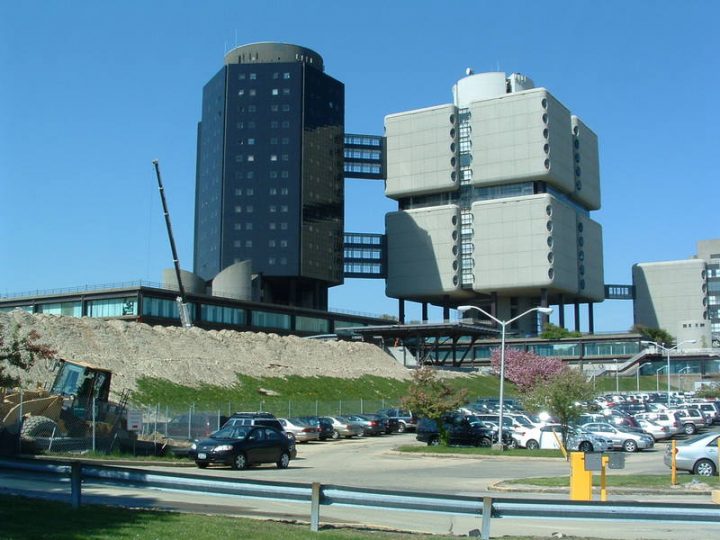By Matina Douzenis
Stony Brook University Hospital (SBUH) — Long Island’s first academic medical center — is taking proactive measures against coronavirus (COVID-19).
Health care professionals are concerned about the shortage of ventilators and personal protective equipment (PPE). In a March 22 press conference, New York Gov. Andrew Cuomo said that he is looking for an additional 30,000 ventilators for Intensive Care Units (ICU), and asked the federal government for help meeting the demand for protective medical supplies like masks, gowns and gloves, which are in short supply.
“We have nurses, doctors — these people are heroes — they’re putting their lives at risk,” Cuomo said in a conversation with CNN’s Wolf Blitzer. “At least get them the right equipment.”
SBUH put out a call for donations of PPE — including face shields, N95 3M 1860 masks, protective eyewear, goggles, disinfectant wipes and hand sanitizer — on March 23.
Stony Brook University has also started to 3D print medically compliant face shields to help with the shortage of PPE, according to a press release on March 23.
The United States is currently on the same trajectory as Italy and Iran in terms of disease spread. Former director of the Centers for Disease Control and Prevention, Dr. Tom Frieden, warns that like Italy, the U.S. could end up with an inundated health care system within weeks, or even days. Modeling China and South Korea’s aggressive measures to contain the virus, such as mandatory lock-downs and travel bans, could prove to be essential in stopping the spread.
According to Cuomo, New York State has approximately 3,000 ICU beds at its disposal. As of March 14, 80% of those beds are currently occupied, he said.
“How do you — can you, reduce the rate of spread to a level that your hospital system can manage?” Cuomo said during a public statement.
Stony Brook Medicine (SBM) is implementing several measures to try and stay ahead of the strain imposed on the hospital system, according to a briefing shared with The Statesman.
“SBM activated a Hospital Incident Command Center (HICS) that meets twice a day (virtually) to hear reports from nearly every hospital and ambulatory department,” the briefing reads.
The update stressed that HICS helps improve patient care, better protect health care providers and allocate resources, among other things.
To combat the impending shortage of hospital beds, Stony Brook University Hospital (SBUH) “created three units comprising of 45 beds in total in the last three weeks for persons under investigation (PUI), with another 16 bedded unit which will be completed shortly,” according to the briefing.
Patients with suspected influenza-like illnesses — not limited to COVID-19 — have been designated to a different screening area, where a board-certified emergency medicine physician or nurse can assess, advise and test patients appropriately. SARS-CoV2 — the virus that causes COVID-19 — testing is available. SBUH did not disclose how many test kits it receives daily.
Stony Brook Medicine maintains relationships with two commercial laboratories — the briefing did not name them — where they send patient samples for testing, in addition to the New York State Department of Health Wadsworth Laboratories.
“We are also working to validate instrumentation to ensure capability to perform internal testing,” the briefing noted. “Testing is the key to mitigating the epidemic, and on-site, point-of-contact testing will greatly improve our handling of PUIs and patients with documented COVID-19.”
Students with applicable lab experience are helping with in-house Polymerase Chain Reaction assays (PCR) — a testing technique used to identify the virus causing COVID-19. M.D. and Ph.D. students are helping with laboratory testing as well.
Graduate, medical and nursing students are on standby to help “when [SBUH] patient numbers climb above our capacity,” according to the briefing.
In an attempt to meet patient needs, SBUH is increasing its telemedicine services, with more than 500 health care professionals virtually treating patients. Telehealth services include psychiatry, neurology, general medicine and pediatrics.
Elective surgeries and procedures have been postponed. Urgent operations to sustain life will move forward as scheduled.
“We have also established and implemented place policies on ambulatory care (consolidating), triaging of dental care patients (only acute and emergency patients will be seen), and on the definitions of essential and non-essential personnel under the current conditions, allowing, with supervisor approval, non-essential personnel to work from home,” SBM writes.






